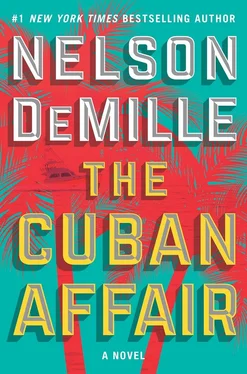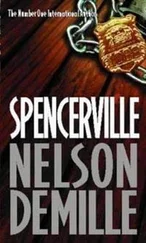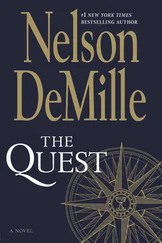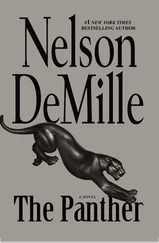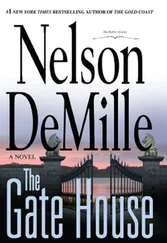Don’t forget fishing tournaments.
Tad and Alison, who’d been holding back on their criticism of the regime, thought they could speak freely without Antonio around, but Lope, who said he spoke no English, seemed to be listening.
The highway ran close to the coast and I gazed out at the Straits of Florida. Somewhere out there, running on a parallel course with us, was the tournament fleet, and The Maine , which, if we’d gotten aboard last night, would now be heading for Key West. As Yogi Berra wisely said, “When you come to a fork in the road, take it.”
As we reached the outskirts of Matanzas, Alison told us, “Before the revolution, Matanzas was home to a large number of artists, writers, musicians, and intellectuals, and was called the Athens of Cuba.”
And now it looked like Pompeii.
We got off the bus into the heat and humidity of a large plaza, and we followed Tad and Alison to a nineteenth-century pharmacy that had been turned into a pharmaceutical museum, housed in a grand mansion once owned by the family who’d also owned the pharmacy. Then came La Revolución.
The old pharmacy was sort of interesting, especially the big apothecary jars of belladonna and cannabis. The opium looked good, too. They don’t have this in Walgreens.
We then walked through the narrow streets of the town, jostling for sidewalk space with the natives, who probably thought our tour bus had taken a wrong turn. I said to Sara, “Now you know why Antonio took the day off.”
“Stop complaining.”
Tad advised us that these provincial towns were safer than Havana with regard to pickpockets and purse snatchers, but we should safeguard our valuables as we walked. I didn’t think he was referring to my Glock, but I’d already moved my fanny pack to my front and covered it with my Polo shirt, giving me a nice beer belly.
As we walked through the town, I spotted a few PNR guys, who looked us over as we passed by, but there is safety in numbers, and as long as Sara and I stayed in the herd we wouldn’t be picked off by a wolf asking to see our passports and visas. S eñor, are you pregnant?
Sara, however, might be too pretty for the wolves to ignore, so I told her, “If you’re stopped, I can’t come to your assistance. That’s Tad and Alison’s job. And if I’m stopped, you don’t know me.”
“Everyone knows we’re together.”
“The police don’t.” And I was happy Antonio wasn’t there to rat us out. I reminded her, “We just met. And sleeping together doesn’t mean we have to get arrested together — or even walk together.”
“All right... I understand.” She offered, “I can carry the gun.”
“It’s my gun.”
On the plus side, the natives seemed friendly, though there didn’t seem to be any reason for this town’s existence.
After a few hours of trying to figure out why we were here, the heat-exhausted herd returned to the plaza and boarded the bus. Sara and I sat together and shared a bottle of water.
Maybe because it was Sunday, our next stop was lunch at the Matanzas Seminary, located on a hill above the city. Alison told us that the seminary was not Catholic — it was Methodist, Presbyterian, and Episcopal — with forty students of both sexes, half of whom, said Alison, would probably leave Cuba at the first opportunity. Me too.
We pulled into the seminary grounds, which were nicely landscaped, and the buildings were in better repair than any I’d seen in Matanzas. I was fairly certain they didn’t have stop-and-frisk here, and I relaxed for the first time today.
As we got off the bus, Sara said, “Religion will save Cuba.”
“Right. Look what it did for Afghanistan.”
“Don’t be a cynic. I never asked — what religion are you?”
“You’ve been sleeping with a Presbyterian. But when I’m getting shot at, I pray to everyone.”
“Would you consider converting to Catholicism?”
Were we talking about a wedding? Or Last Rites?
“Mac?”
“Yes, I’d consider that.”
She took my hand and squeezed it.
We were greeted by a pleasant middle-aged lady who escorted us into a refectory with long tables and benches, and Sara and I found ourselves sitting with Tad and Alison, who didn’t appear to have hooked up yet. Also at our table were Alexandra and Ashleigh, whom I’d chatted up at the welcome dinner before I fell in love with Sara Ortega. At the end of the table was our driver, Lope, who hadn’t picked his table at random.
There were pitchers of iced tea on the table, hopefully waiting to be turned into wine. Nice-looking young men and women, alight with the Holy Spirit, brought out platters of food. I’d expected loaves and fishes, but we got rice and beans, and poultry that had come in second in a cockfight.
We all made small talk, then Tad asked me, “How are you enjoying yourself so far?”
“This has been an eye-opening experience.”
“And there’s more to come.”
Right. But not with you. I asked, “Where’s Antonio today?”
“I’m not sure. He was scheduled to be with us.”
“I hope he’s not sick.”
“He left word that he’d be joining us tomorrow.”
“But not tonight for dinner?”
“Apparently not.”
Correct. Sara and I were having drinks with Antonio tonight.
Alison said, “We’re having dinner tonight at La Guarida, one of the best restaurants in Havana, housed in a huge old mansion. If you’ve seen the movie Fresa y Chocolate, you’ll recognize scenes that were shot there.” She added, “La Guarida was favorably reviewed in the New York Times.”
“So was Fidel Castro,” I said.
Everyone thought that was funny. Even Lope, who smiled.
Alison asked us all where we’d wound up having dinner on our own last night, and everyone at our table had a culinary adventure tale, some good, some not so good. I admitted, “Sara and I drank dinner at Floridita.”
That got a few chuckles. We were really bonding. In another week we’d be calling one another by our first names.
Tad took the opportunity to chide me and Sara. “We missed you at the ballet rehearsal and the visit to the firefighter museum.”
Sara responded, “I wasn’t feeling well and Mac walked me back to the hotel.”
Alison advised, “Stay hydrated.”
This wasn’t a good time to tell Tad and Alison that we were blowing off the group dinner tonight, but I set it up by asking, “What are the first symptoms of malaria?”
No one seemed to know.
Anyway, before lunch was finished, Sara looked at her watch and made an announcement. “I have an appointment with Dr. Mendez, who is the rector here.”
Really?
She explained, “I’m involved with an ecumenical charity in Miami, and I’ve brought cash donations for several religious institutions in Cuba.” She stood. “I’ll meet up with the group shortly.” She left, carrying her purse of pesos.
Alison said, “That’s very nice.”
And also consistent with her cover story.
Our next stop was the chapel to hear the chamber choir perform. I wasn’t looking forward to this, but the young men and women in the choir had angelic voices, singing some great oldies like “Rock of Ages” and “Amazing Grace,” and for a few minutes I was a kid wearing my Sunday suit, sitting in First Pres in Portland. Meanwhile, Sara was still MIA.
We next went to an outdoor lecture given by a theologian who told us that there was a religious revival occurring in Cuba, but it was mostly driven by Evangelical Protestants, not the Catholic Church. I was sure the Pope would be back.
Sara appeared at the end of the lecture and we all boarded the bus for the trip back to Havana.
I asked her, “How much did you give them?”
Читать дальше
